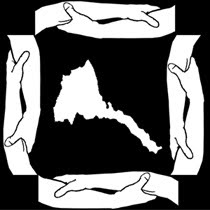IL PUGNO DURO DI OBAMA SUL FENOMENO MIGRATORIO
Arizona, Alabama, Utah, Georgia, Indiana e South Carolina
ore 10:15 -
WASHINGTON – Che sia una mossa “acchiappavoti” o meno, sta di fatto che l’amministrazione americana ha deciso di citare a giudizio, dinanzi alle Corti Statali, le leggi sull’immigrazione che di recente sono state approvate in 6 Stati. Barack Obama non ha usato mezzi termini nel definire l’accusa “molto grave”: per colpire il fenomeno dei clandestini, queste leggi si rivelano crudeli e discriminatorie nei confronti degli immigrati legali. Oltre l’Arizona, dinanzi al giudice saranno portato anche Alabama, Utah, Georgia, Indiana e South Carolina.
Questa iniziativa è stata subito definita “senza precedenti”: “mai nella storia americana il dipartimento di Giustizia ha attaccato in modo così aggressivo leggi dei singoli Stati sul singolo argomento”. Tale decisione di Barack Obama sembra arrivare dopo che la Corte Suprema, l’anno scorso, dichiarò incostituzionale una parte della legge dell’Arizona, in virtù della quale la polizia era autorizzata a chiedere i documenti a un cittadino basandosi solo sul suo cognome o sul suo accento: una norma che ovviamente fece sollevare tutto lo Stato.
Se da una parte cerca di tutelare gli immigrati regolari, dall’altra il presidente Obama deve dimostrare fermezza contro i clandestini, per non perdere voti nei ceti più moderati che chiedono la sicurezza dei confini, legge e ordine. E per farlo, la sua amministrazione ha promosso imponenti interventi di polizia contro l’immigrazione clandestina. Solo ieri, una vasta retata da parte della polizia migratoria americana ha infatti portato all’arresto di oltre 2900 clandestini con precedenti penali in oltre 50 Stati. L’operazione, denominata “Cross Check”, cioè “posto di blocco”, è stata condotta dagli agenti del Us Immigration and Customs Enforcement (ICE) al termine di una settimana di indagini e controlli.
Questa iniziativa è stata subito definita “senza precedenti”: “mai nella storia americana il dipartimento di Giustizia ha attaccato in modo così aggressivo leggi dei singoli Stati sul singolo argomento”. Tale decisione di Barack Obama sembra arrivare dopo che la Corte Suprema, l’anno scorso, dichiarò incostituzionale una parte della legge dell’Arizona, in virtù della quale la polizia era autorizzata a chiedere i documenti a un cittadino basandosi solo sul suo cognome o sul suo accento: una norma che ovviamente fece sollevare tutto lo Stato.
Se da una parte cerca di tutelare gli immigrati regolari, dall’altra il presidente Obama deve dimostrare fermezza contro i clandestini, per non perdere voti nei ceti più moderati che chiedono la sicurezza dei confini, legge e ordine. E per farlo, la sua amministrazione ha promosso imponenti interventi di polizia contro l’immigrazione clandestina. Solo ieri, una vasta retata da parte della polizia migratoria americana ha infatti portato all’arresto di oltre 2900 clandestini con precedenti penali in oltre 50 Stati. L’operazione, denominata “Cross Check”, cioè “posto di blocco”, è stata condotta dagli agenti del Us Immigration and Customs Enforcement (ICE) al termine di una settimana di indagini e controlli.




